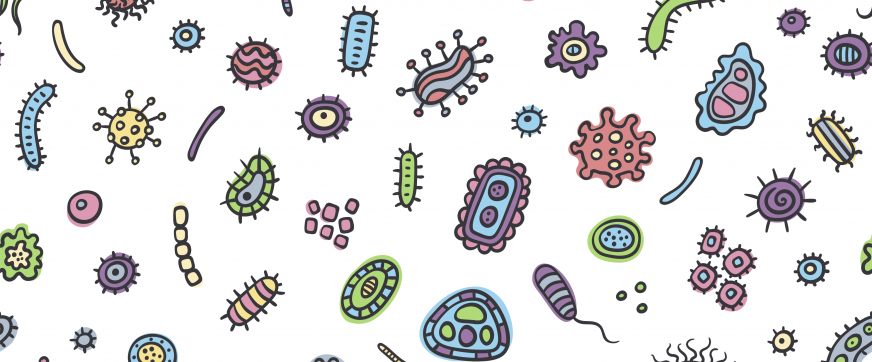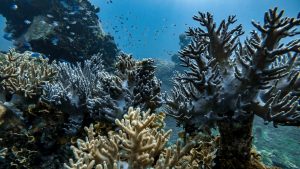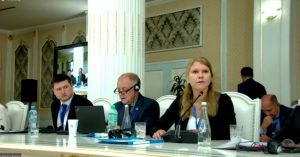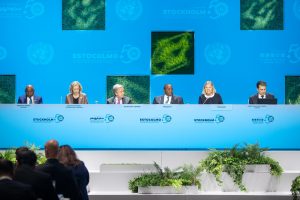The key to improving public health through water
“[Water] links to everything, to life, our health, to food, to the economics of our community, vitality, our whole well-being and even our spirituality. We are very connected to water”, said Professor Joan Rose.
She is an American microbiologist whose expertise lie in water-borne diseases in humans, which are typically spread through fecal contamination. Joan Rose won the 2016 Stockholm Water Prize for her tireless contributions to global public health. The two young researchers who joined her for the Water Dialogues, Michaela Itatí Linera and Emiliano Aquino, had studied the water-based disease of dengue virus. Their study exemplified the three keys which Joan argued to be the basis of improving public health: monitoring, communication and collaborative science.
Monitoring
The key to understanding the spread of disease is monitoring. Today we have the ability to monitor diseases in order to better understand them thanks to technological advancements, such as modernized water testing and great laboratories. This is currently underway with Covid-19, as it can be monitored through our wastewater. “Our sanitation systems can monitor our community’s health”, Professor Joan Rose said on this research and hoped that this knowledge can turn into public health action. She explained that the monitoring of the wastewater showed an increase in the SARS-CoV-2 virus, as it increased among the population.
Communication
Joan Rose also pressed for the importance of communicating your science, both in terms of presentations and writing it down. With the new changes which the world is experiencing, new technologies also provide great platforms for presenting data to various communities, sharing knowledge and moving to action in a fast and efficient way. She used the webinar as an example of how we can reach out to the public in a great way, and how we can even do so from different continents, scientific backgrounds, generations and even in different languages. Through the magic of simultaneous interpretation, the webinar served as a platform in which Joan Rose, Michaela Itatí Linera and Emiliano Aquino could have a conversation in their respective languages.
Collaborative Science
“The future is collaborative science”, at least if you ask Joan Rose. This scientific teamwork is relevant and important both in the case of Covid-19, in which the scientific collaboration between health, community, laboratories and science, has been crucial, and in global policy, in which it can be countries sharing approaches. In all forms, collaborative science can lead us to better policies and improved health.
Joan explained that she collaborates a lot with people of different academic backgrounds, such as climate scientists, environmental engineers and hydrologists. This type of collaborative science is both a way to achieve great results and something which inspires her work. Collaboration was also one of the key elements which she mentioned when talking about her own work with students at Michigan State University. “In my group, students learn about collaboration, helping each other, and learn about each other’s projects as well”, she said.
It Takes a Village
Joan Rose praised the young research team for their engaged research, in which they have engaged with all levels of society: their schools, local nurses, firemen and police officers. When asked how the people in the municipality reacted to Emiliano’s and Micaela’s win in the national competition, Emiliano emphasised that the win was a shared victory. They had collaborated with many people in their research project, from nurses to firemen, and were proud to bring home the victory for the 8000 people in the municipality. Micaela agreed and gave the example of the help that they received from various members of their community as a sign of their collective pride.
Despite coming from a very rural area with limited economic resources, the small town was an asset for them, as everyone knows each other and could provide help if needed. A truly collaborative effort!
Mentors and Fieldwork
“There was a great scientist who once said that the great inspiration for any student is outside of the classroom”, Emiliano said when asked what inspired him for this project and that the field studies were a big motivation for him. He passed the question to Joan asking what her motivation was when she first started out. “I always loved science”, she said continuing that she found microbiology and simply wanted to keep learning everything about that topic. Joan agreed that field work is a great way to get inspired, since water is to be found mostly outside of the classroom.
When talking about her and Emiliano’s professor for the project, Micaela highlighted the importance of mentors. Joan agreed that mentors are vital and that at this stage in her career, young people like Emiliano and Micaela are a great source of inspiration for her.
By continuing to seek and seize opportunities for collaboration, communication and innovation we can improve public health through water. From locally researched projects in Argentina to globally recognized conclusions – water can be the connector that saves our lives.
Watch the dialogue on Facebook (English interpretation)
Watch the dialogue on Zoom (Original sound)





